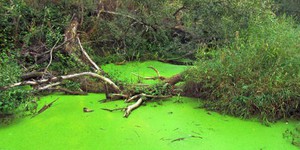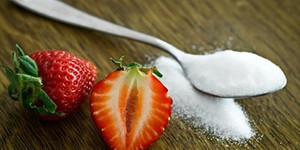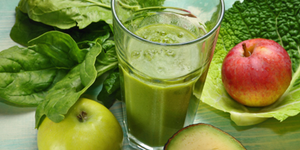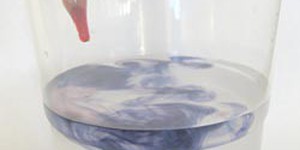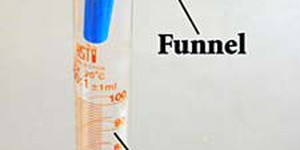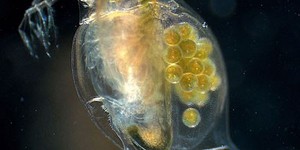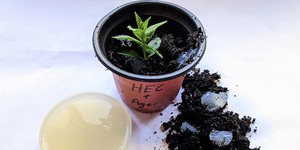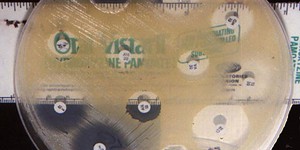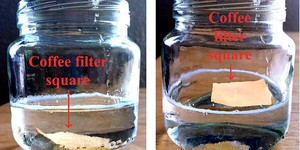Others Like “Slimey Likes It! Studying Chemotaxis in Physarum Polycephalum ” (top 20 results)
|
You might not know it, but a lake without algae would be a very dull place. If there were no algae, there would be no small animals feeding on the algae, and there wouldn't be any fish eating the small animals that eat the algae. You might conclude that since some algae is good, more algae is even better, but algae growth has a down side. If there is too much algae, they can deplete the oxygen in the water, killing off other species in the water. What is one culprit that leads to algal growth?…
Read more
Maple syrup on pancakes, ripe bananas, and soft drinks are all foods that are tasty to us
because of the sugar in them. But did you know there are different kinds of
sugar? One food can have multiple kinds of sugar in it, and our bodies actually process
the different types of sugars differently. In this science project, you will measure the
concentration of two sugars—glucose and sucrose—in different foods, and investigate how
sucrose is converted into glucose with the help…
Read more
Do you enjoy drinking smoothies packed full of berries and other tasty fruits? Or maybe you like drinking a creamy milkshake with peanut butter, chocolate, and bananas. Smoothies and milkshakes are often tasty to us because of the sugar in them. But did you know there are different kinds of sugar? Some ingredients in a smoothie can have more than one kind of sugar in them, and our bodies process each kind of sugar differently. In this science project, you will measure the concentration of…
Read more
Have you ever noticed that the salt you are using says it is "iodized"?
Iodine is an important micronutrient, which means we need it in small quantities to be healthy. Because iodine is rare in many people's normal diets, it is added to table salt. Then when people salt their food, they are also adding this important micronutrient. In this food science project, you will use some kitchen-friendly chemistry to investigate which types of salt have iodine added (in the form of iodide) and which do…
Read more
Do you know why enzymes are oftentimes called the workhorses of biochemistry? It's because they can speed up a wide variety of chemical reactions, and chemists and biologists use enzymes to do all kinds of jobs. In this project, pectinase, an enzyme frequently used in the food industry, will be used to extract juice from apples.
Read more
Do you know that many consumer products, such as sports clothes, cosmetics, and even food containers contain tiny silver particles? These so-called nanoparticles—usually 1–100 nanometers (a billionth of a meter) in size—are toxic to bacteria and fungi and therefore, are used to prevent them from growing on everyday items you use. But what happens if the silver nanoparticles get into the water; for example, when you wash off your makeup or clean your clothes? Do they…
Read more
Bacteria are powerful little creatures. They can dispose of contaminants, make us sick and did you know they can even generate electricity? In devices, called microbial fuel cells (MFC) they can extract electrons from their food sources such as organic materials and feed them into an electrical circuit to generate power. This way they can even turn plain soil into a source of energy! Does it matter though what kind of food the bacteria "eat"? Find out how bacteria grow in a microbial fuel cell…
Read more
Growing crops takes a huge amount of water. That same water is also needed for drinking, bathing, and other industries. In dry climates or lands experiencing drought, there is a big push to conserve (save) water as much as possible. In this project you will experiment with creating environmentally friendly jelly-like materials called hydrogels and see if they can help soil retain water thus reducing the amount of water needed to grow crops.
Read more
Have you ever wondered where acne comes from and how you can treat it? One major cause of acne is the colonization and infection of clogged pores with bacteria. In this science project, you'll test different acne medications and treatments to determine their effectiveness at killing bacteria.
Read more
Enzymes speed up chemical reactions by factors of at least a million. Now that's acceleration! This project investigates how temperature affects how fast these enzymatic reactions occur.
Read more
|
Explore Our Science Videos
Make a Straw Siphon
DIY Mini Drone Part 2: Altitude Control Circuit
Self-Driving Cars Science Project: Automatic Braking


